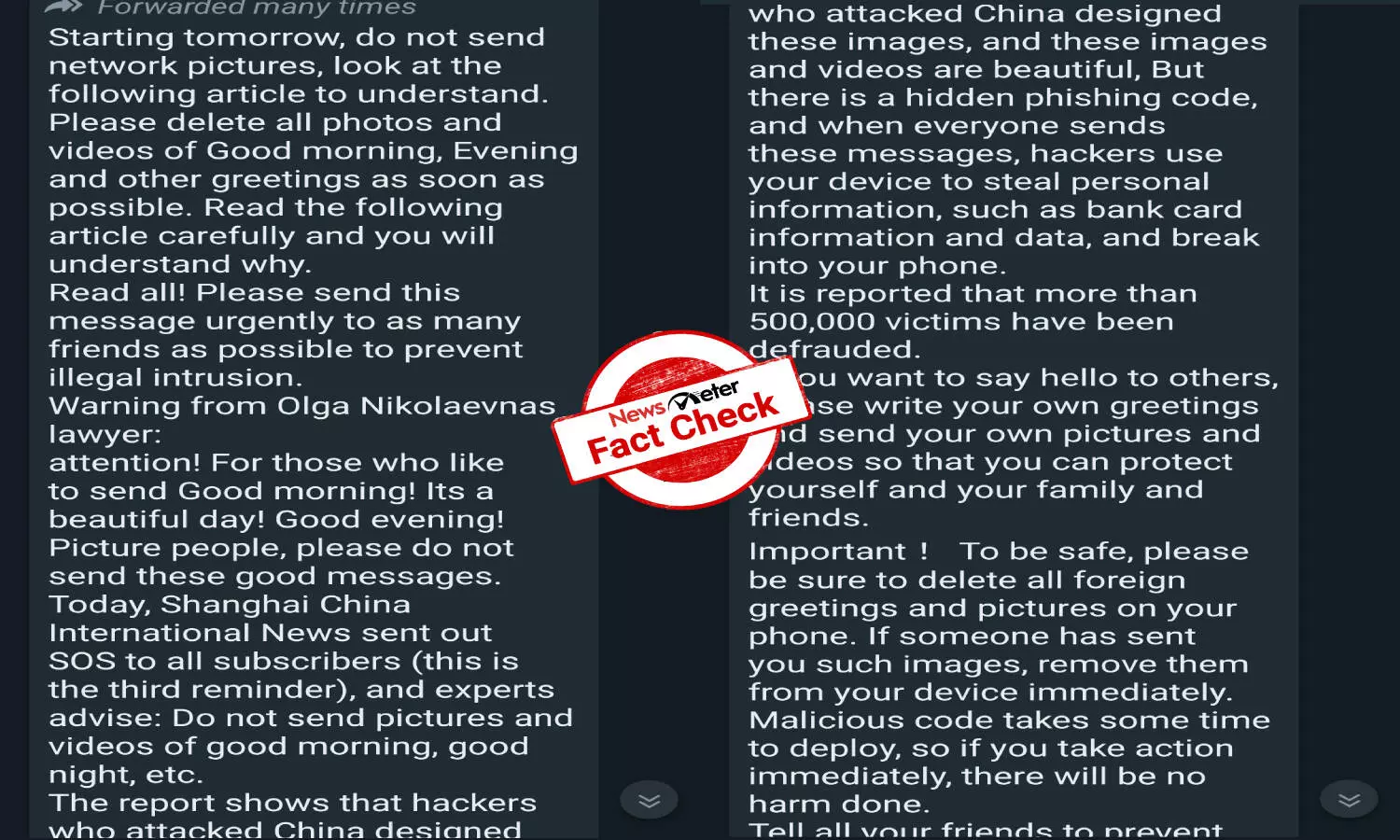Hyderabad: A message claiming that sending "good morning" WhatsApp forwards can expose a user to phishing is circulating on social media.
The message reads, "Today, Shanghai China International News sent out SOS to all subscribers (this is the third reminder), and experts advise: Do not send pictures and videos of good morning, good night, etc. The report shows that hackers who attacked China designed these images, and these images and videos are beautiful, But there is a hidden phishing code, and when everyone sends these messages, hackers use your device to steal personal information, such as bank card information and data, and break into your phone."
It asks users to delete all "foreign greetings and pictures" from their phones. "If someone has sent you such images, remove them from your device immediately. Malicious code takes some time to deploy, so if you take action immediately, there will be no harm done," it continues.
Fact Check
The claim is false.
NewsMeter ran a search and found no website or organisation that goes by the name 'Shanghai China International News'.
The warning also does not include relevant details such as which websites or mobile apps are affected, or how the attack works from a technical perspective.
Further, we also checked official government websites and social media handles but did not find any such announcement. Neither did we find any information regarding this on the website of the Indian Computer Emergency Response Team (CERT-In).
CERT-In, under the Information Technology ministry, is tasked with protecting Indians from cyber threats.
We also found that a similar post has been in circulation since 2017.
Moreover, upon further research, we found that the process of hiding secret information inside a data source is known as Steganography. In this, malware or phishing URLs can be concealed in a text file, images, audio, and video.
Malaysia-based news portal The Star had reported about the same hoax message two years ago and called it fake.
Hence, the claim is false.
